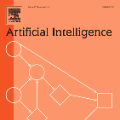
With humans interacting with AI-based systems at an increasing rate, it is necessary to ensure the artificial systems are acting in a manner which reflects understanding of the human. In the case of humans and artificial AI agents operating in the same environment, we note the significance of comprehension and response to the actions or capabilities of a human from an agent's perspective, as well as the possibility to delegate decisions either to humans or to agents, depending on who is deemed more suitable at a certain point in time. Such capabilities will ensure an improved responsiveness and utility of the entire human-AI system. To that end, we investigate the use of cognitively inspired models of behavior to predict the behavior of both human and AI agents. The predicted behavior, and associated performance with respect to a certain goal, is used to delegate control between humans and AI agents through the use of an intermediary entity. As we demonstrate, this allows overcoming potential shortcomings of either humans or agents in the pursuit of a goal.
翻译:人类与基于AI的系统互动的速度越来越快,有必要确保人造系统以反映对人的理解的方式运作。对于在同一环境中运作的人类和人工AI代理人,我们注意到从代理人的角度理解和应对人类行动或能力的重要性,以及视在某一时间阶段谁被认为更合适而将决定权委托给人或代理人的可能性。这种能力将确保整个人类-AI系统的反应和效用得到改善。为此,我们调查使用认知激励的行为模式预测人类和人工AI代理人的行为。预测的行为和与某一目标相关的业绩,通过使用中间实体,用于将控制权下放给人和人工代理人。我们证明,这可以克服人类或代理人在追求某一目标方面的潜在缺陷。


